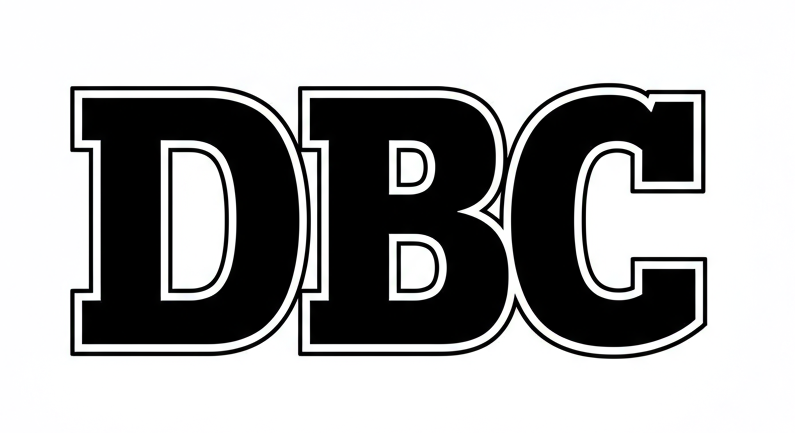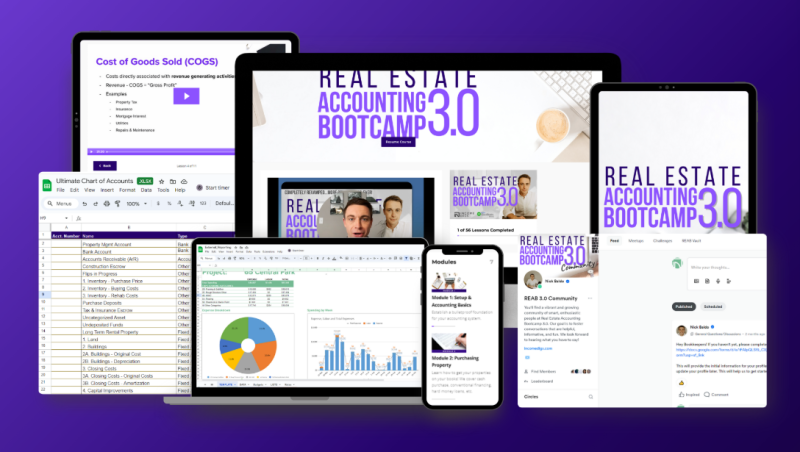Implementation Plan
Successfully implementing the knowledge gained from the Nick Baldo – Real Estate Accounting Bootcamp 3.0 requires a structured approach. Here is a suggested implementation plan:
- Module-by-Module Application: Dedicate time after completing each module to immediately apply the concepts to your own real estate business. For instance, after Module 1, focus on setting up your Chart of Accounts correctly. After Module 2, practice entering a recent property purchase.
- Utilize QuickBooks Online Features: Actively work within QuickBooks Online as you progress through the course. Pause videos to replicate the steps Nick demonstrates in your own QBO account. This hands-on practice is crucial for mastering the software’s real estate applications.
- Regularly Reconcile Accounts: Implement a consistent schedule for reconciling your bank and credit card accounts – ideally monthly. This is a fundamental accounting practice that helps catch errors and ensure the accuracy of your data. The course provides guidance on this process.
- Practice Reporting: As you gather more data, actively practice generating and analyzing the various reports discussed in Module 6. Understand what the numbers mean for your properties and overall business health. Customize reports to get the insights you need.
- Engage with the Community (if applicable): If you have access to the REAB Community, actively participate. Ask questions about scenarios specific to your business, learn from others’ experiences, and share your own progress and challenges.
- Schedule Regular Bookkeeping Time: Allocate dedicated time each week or month for bookkeeping tasks. Consistency is key to staying on top of your finances and preventing overwhelm. Treat it as a non-negotiable part of your business operations.
- Plan for Tax Season Early: As you implement the accounting practices, keep tax season in mind. Proper categorization and documentation throughout the year will significantly simplify tax preparation. Review the course material related to tax implications as you approach year-end.
Real-World Applications and Success Stories
The principles taught in the Nick Baldo – Real Estate Accounting Bootcamp 3.0 are directly applicable to a wide range of real estate activities. Investors can use the knowledge to accurately track the profitability of individual rental properties, understand the true cost of renovations, and make informed decisions about buying and selling. For those involved in flipping, the course provides crucial tools for managing project budgets and calculating returns. Real estate business owners gain the ability to create professional financial statements, manage cash flow effectively, and prepare accurate reports for partners or lenders. While specific success stories from this version weren’t available in the provided text, the practical nature of the curriculum, focusing on tools like QuickBooks Online and real-world scenarios (like HUD statements and 1031 exchanges), strongly suggests that students equipped with this knowledge gain significant control over their finances, leading to better decision-making and ultimately, more successful real estate ventures.
Pricing
Based on the provided information, participation in the Nick Baldo – Real Estate Accounting Bootcamp 3.0 is accessible through a membership model via the platform where the course was sourced. The platform offers two primary membership options:
- Monthly Membership: Starting at $25 per month, this option provides access to the bootcamp and other available resources for the duration of the subscription.
- Lifetime Membership: This option provides lifetime access to the bootcamp and all other available content on the platform for a single, upfront fee.
The listed value of the included bonuses further highlights the potential value proposition:
- Free Access to REAB Community: Valued at $1,164.
- 30-Day Access to REAB+ (Live Q&A and Exclusive/Behind The Scenes Lessons): Valued at $1,765.
- Free Crash Course: Google Sheets Crash Course: Valued at $497.
It’s important to note that these listed values are likely representative of the cost if these components were purchased separately outside of the membership or original course offering. The membership price offers access to the bootcamp and these valuable resources as part of a bundle. Potential students should consider which membership option best suits their learning needs and budget, weighing the benefits of ongoing access against a one-time cost. Further details about the exact pricing for the Lifetime Membership would be necessary for a complete comparison. The structure suggests that the platform aims to provide significant value through its membership offerings, bundling this comprehensive accounting bootcamp with other relevant resources and community support.
Pros and Cons
Pros
- Highly Specialized Content: Focuses specifically on real estate accounting, addressing the unique challenges of the industry.
- Practical and Actionable: Emphasizes real-world implementation, particularly with QuickBooks Online.
- Comprehensive Curriculum: Covers the entire lifecycle of a real estate investment from purchase to disposition.
- Structured Learning: Organized into logical modules with numerous video lessons for easy digestion.
- Valuable Bonuses: Includes access to a community and supplementary courses (Google Sheets, REAB+) adding significant value.
- Self-Paced Learning: Allows students to learn at their own speed and revisit material.
- Lifetime Access (with relevant membership): Provides long-term reference and refreshers.
- Demystifies Complex Topics: Breaks down concepts like depreciation and capital improvements effectively.
- Focus on QBO: Excellent for users of or those planning to use QuickBooks Online.
- Aids in Tax Preparation: Proper implementation significantly simplifies tax filing.
Cons
- Requires QuickBooks Online: While a pro for QBO users, it might be less ideal for users of other accounting software.
- Relies on Self-Discipline: As a self-paced course, completion requires personal motivation and commitment.
- Bonus Access Dependent on Membership: The outlined bonuses are included through the platform’s membership model, the cost and terms of which need to be considered.
- Potential for Overwhelm: The depth and breadth of accounting concepts might be challenging for complete beginners without any prior accounting exposure.
- No Live Instruction (except REAB+ bonus): The core course is pre-recorded videos, lacking real-time interaction for immediate clarification (though REAB+ helps for 30 days).
- Information from a Specific Platform: The course description and access are tied to a specific download platform, which may or may not be the original source or preferred method of access for everyone.
FAQs
Is the Nick Baldo – Real Estate Accounting Bootcamp 3.0 suitable for beginners?
While the course covers fundamental concepts like debits and credits, it moves relatively quickly into specialized real estate accounting. Basic familiarity with accounting principles or a willingness to dedicate extra time to foundational concepts outside the course might be beneficial for complete beginners.
Do I need QuickBooks Online to take this course?
While the course focuses heavily on using QuickBooks Online for real estate accounting, the underlying accounting principles are universal. However, to fully implement the practical examples and techniques taught, having access to and using QuickBooks Online is highly recommended.
How long does it take to complete the bootcamp?
The course is self-paced, so completion time varies depending on individual learning speed and how much time is dedicated each week. With 55 lessons, dedicating a few hours per week, you could expect to complete the core material within several weeks to a couple of months.
What is the REAB Community?
The REAB Community is a bonus included with access to the bootcamp. It’s likely a forum or group where students can connect, ask questions, share experiences, and get support related to real estate accounting and the course material.
What is REAB+?
REAB+ is described as providing 30-day access to Live Q&A Sessions and Exclusive/Behind The Scenes Lessons. This bonus offers a limited-time opportunity for real-time interaction and access to supplementary content.
REAB+ is described as providing 30-day access to Live Q&A Sessions and Exclusive/Behind The Scenes Lessons. This bonus offers a limited-time opportunity for real-time interaction and access to supplementary content.
Will this course help me with my real estate taxes?
Yes, a significant benefit of this course is learning how to properly categorize income and expenses, track capital improvements and depreciation, and understand the accounting implications of various transactions (like sales and 1031 exchanges). This accurate and organized financial data is essential for preparing correct tax returns and potentially identifying tax-saving opportunities, though it does not replace the advice of a qualified tax professional.
Final Verdict
The Nick Baldo – Real Estate Accounting Bootcamp 3.0 appears to be a robust and highly practical course for anyone involved in real estate investing or management who wants to gain mastery over their finances. Its strong focus on real-world application, particularly with QuickBooks Online, makes it incredibly valuable for those seeking to implement effective accounting systems. The comprehensive nature of the curriculum, covering everything from basic setup to advanced reporting and complex transactions like 1031 exchanges, ensures that students receive a well-rounded education in real estate accounting. The inclusion of bonuses like community access and supplementary resources further enhances the value proposition. While the self-paced nature requires discipline, and the focus on QBO means users of other software might need to adapt, the depth of knowledge provided on critical real estate accounting topics like depreciation, capital improvements, and transaction handling is significant. For real estate professionals and investors tired of feeling overwhelmed by bookkeeping and eager to leverage financial data for better decision-making, the Nick Baldo – Real Estate Accounting Bootcamp 3.0 seems like a worthwhile investment. It provides the tools and knowledge necessary to build a sustainable accounting process, achieve financial clarity, and ultimately contribute to the long-term success of your real estate ventures. If you are committed to understanding the financial backbone of your real estate activities, this bootcamp offers a clear path to achieving that goal.

Tom
Typically replies within a day

Hello, Welcome to DBC. Please click below button for chatting me through Telegram.

